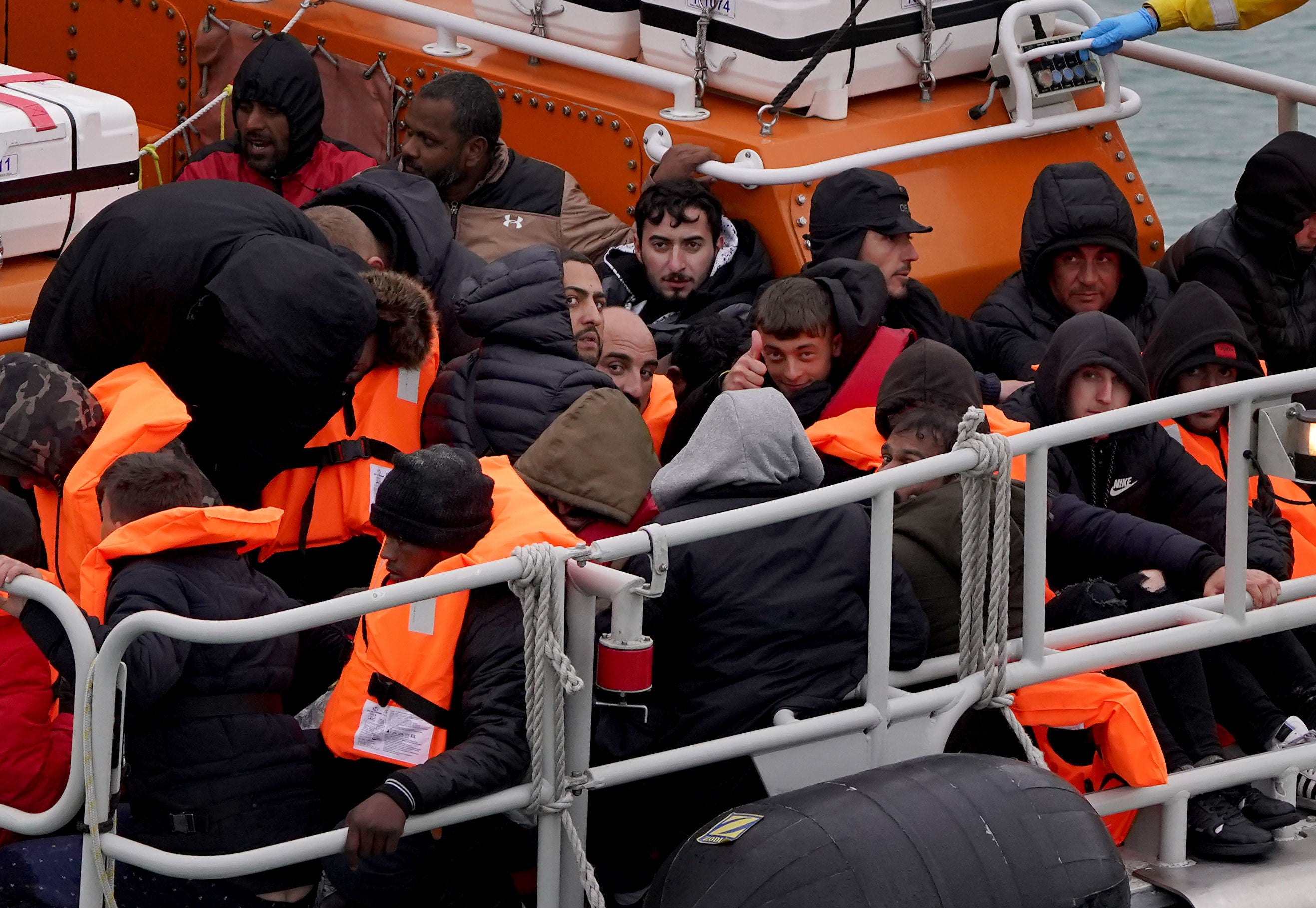More than 250 people detected in small boats after break in Channel crossings
Updating its figures for Sunday, the Ministry of Defence confirmed 254 migrants were detected in small boats.

Some 254 people were detected in small boats crossing the Channel to the UK on Sunday after an 11-day pause in such journeys.
The figure was confirmed by the Government as more people thought to be migrants were seen being brought in to Dover on Bank Holiday Monday.
There is believed to have been an 11-day break in activity around the Channel from April 20 to 30, when no crossings were recorded amid reports of strong winds and choppy seas.
Updating its figures for Sunday, the Ministry of Defence (MoD) confirmed 254 migrants were detected in seven small boats.
On Monday morning, more people believed to be migrants were pictured on the Dover Lifeboat following what was thought to be a small boat incident in the Channel.
The MoD took over control of migrant operations in April, when the Government also announced controversial plans to send some of those making the cross-Channel journey to Rwanda.
The Government’s Nationality and Borders Bill – dubbed the anti-refugee Bill by campaigners as it makes it a criminal offence to knowingly arrive in the UK illegally and includes powers to process asylum seekers overseas – became law on Thursday.
Last month, Home Secretary Priti Patel signed what she described as a “world-first” agreement with Rwanda.
The deal will see the east African nation receive asylum seekers deemed by the UK to be inadmissible, having arrived “illegally” under new immigration rules, but it has been met with criticism and is already facing legal challenges.
Sunday’s figures mean at least 6,947 people have reached the UK since the start of the year after navigating busy shipping lanes from France in small boats, according to data compiled by the PA news agency.
That is more than three times the amount recorded by this time last year (2,004) and over six times the figure for the same period in 2020 (1,006).
Typically there can be periods of several days or weeks without migrant crossings, often depending on weather conditions.
Two longer gaps of 16 and 13 days without crossings were recorded earlier this year, before the Rwanda deal was announced.
The longest period without any crossings so far in 2022 was 16 days, between January 27 and February 11, PA analysis of Government figures shows.
Labour leader Sir Keir Starmer said there needs to be “an international co-ordinated criminal response” to tackle the the “criminal gangs” that he said are driving the migrant crisis.
Speaking on the campaign trail in Worthing, West Sussex, he said: “Nobody wants to see anybody making that perilous journey across the Channel and everybody wants to crack down on the criminal gangs that are driving this.
“The best way to do that is to have an international co-ordinated criminal response.
“I have worked on international criminal organisations before when I was director of public prosecutions.
“I know what can be done if you’ve got teams working together across Europe all the way along those routes, absolutely bearing down on these criminal gangs, and working very closely with the French authorities as well.”
Bookmark popover
Removed from bookmarks